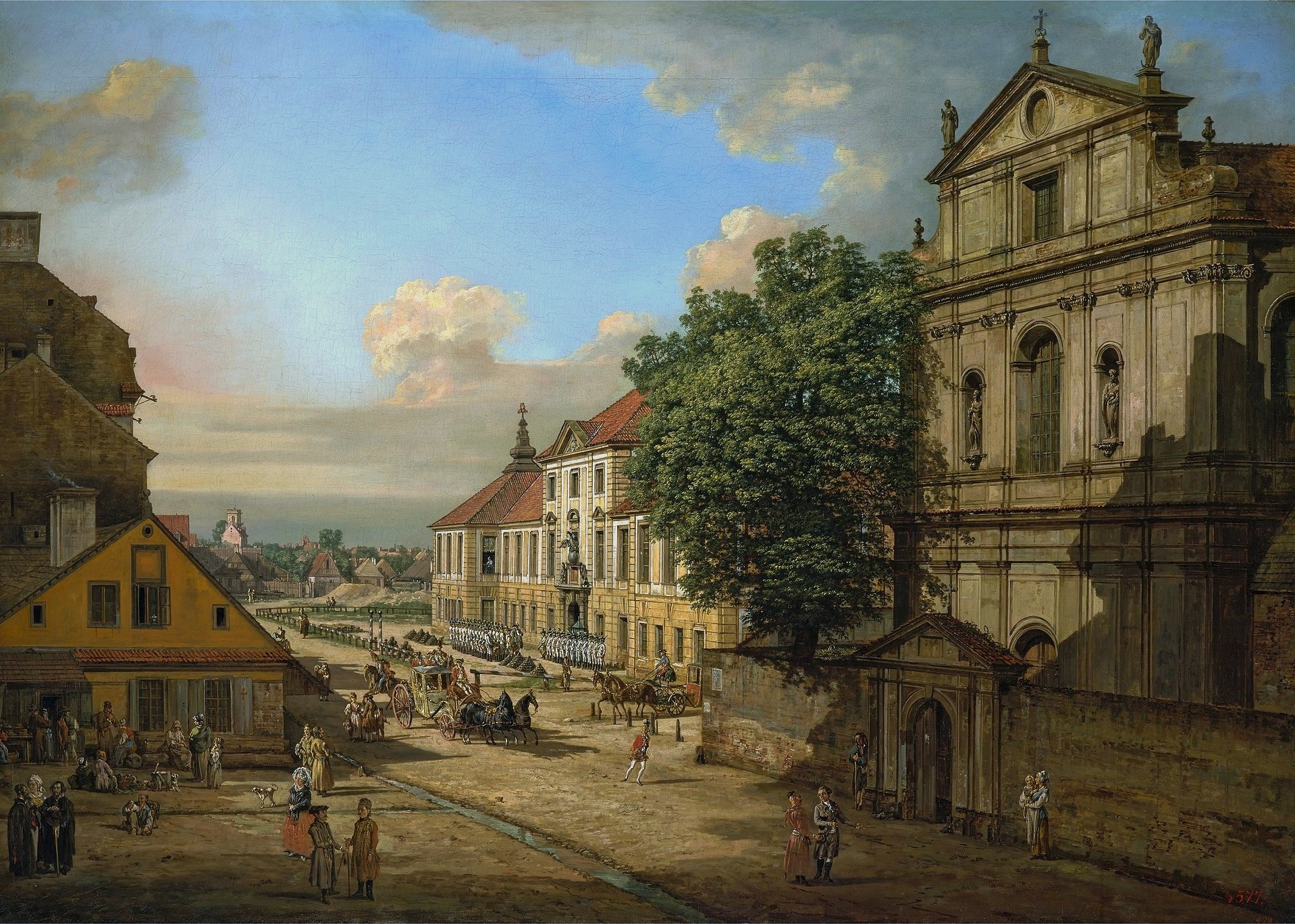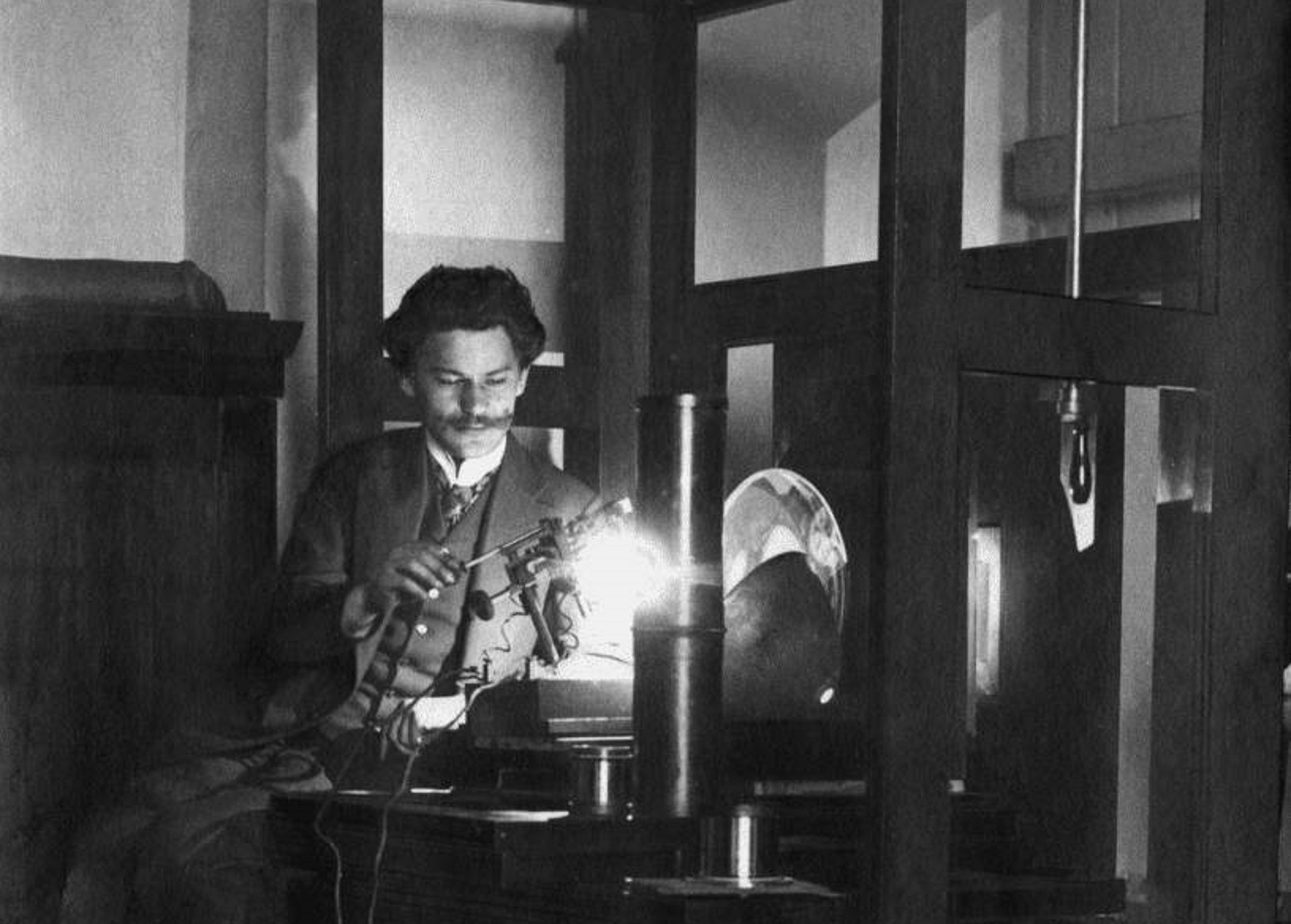The Enlightenment, like no other age, created a myth of its own splendor. These were supposed to be the times of entering onto the road of progress and liberation from obscurantism, promising freedom and a truly happy life. Curtis G. Murphy’s book From Citizens to Subjects shatters this image.
by Michał Rzeczycki
According to Murphy, the Enlightenment brought societies bureaucratic oversight, which instead of order, often left behind chaos and ruin. It was not to be otherwise in the Polish-Lithuanian Commonwealth, which, having the opinion of being anarchic, seemed a great field of demonstration for reformers. From Citizens to Subjects could bring a breakthrough in the ways of thinking about the history of Poland and the modernization of European countries in general.

City, State, and the Enlightenment in Poland, Ukraine, and Belarus
Author: Curtis Murphy
Publishing house: University of Pittsburgh Press, 2018
When we think about the reasons for the fall of the Commonwealth, we often point to its political system as the primary culprit. This conclusion comes first of all from the comparison of the former Polish-Lithuanian state to Russia, Prussia and Austria, which in the eighteenth century became powerhouses in the European arena. All the partitioning powers developed a strongly centralized government, professional administration and a large and well-organized army. Thanks to this, they wielded considerable power by means of which they could effectively pursue their interests at the expense of neighboring states. Hard policy measures decided success: the military, money and professional diplomacy. The Commonwealth did not have any of these tools at its disposal. The country was impoverished as a result of numerous wars, the government was ineffectual due to the dissolution of parliaments, and there never was a professional administration.
Enlightenment canons of thinking have a huge impact on the current assessment of the last years of the Commonwealth. Contemporary thinkers considered Newton’s physics and Euclid’s geometry as the models of rational reasoning. Both these theories perfectly explained the world, and at the same time they were uncomplicated. It was enough to base reasoning on several principles to quickly achieve the desired results. However, the admiration for these theories was not only limited to their simplicity and persuasive ability. It was hoped that the knowledge provided by Newton’s physics would allow for the development of many new inventions. Progress seemed inevitable.
The Enlightenment way of thinking about the world, when it was applied as a criterion for the assessment of social and political matters, could not tolerate the old way of organizing life. In the Middle Ages, rule was exerted on the basis of various privileges granted to particular groups. Other regulations prevailed in the provinces, and still others in cities. This opaque tangle of laws and extensive self-government seemed completely senseless to the Enlightenment reformers and contradictory to progress. Just as geometry theorems were based on several principles, so all the manifestations of the life of the state should focus in the center, that is in the government. Local laws and local governments were considered to be an obstacle to effective management of the country, and their continued existence was contrary to progress. The changes were therefore considered necessary and they had to be made as soon as possible.

As Murphy points out, the growth in strength of the partitioning powers and the Enlightenment beliefs identified progress and modernization with centralization and professionalization at all levels of social life. To this day, it has a fundamental significance in thinking about the Old Polish Republic. Regardless of the criticism of noble society, historians have reached a consensus as to the direction of changes that would have had to been made to avoid partitions. The Krakow historical school focused on the criticism of the nation, which was itself considered guilty of its own tragedy. On the other hand, the more optimistic Warsaw school pointed out that despite everything, the elites were still able to recognize the seriousness of the situation and undertake reforms that had been realized in the Constitution of 3 May 1791. However, no one challenged the premise imposed by the Enlightenment that the only direction of change was centralization on the model of the partitioning powers. Murphy’s book is the first work that undermines this judgment. From Citizens to Subjects is a vigorous criticism of Enlightenment reform ideas. He holds them responsible for not only neglecting the local specifics and habits of people, but also (oh irony!) ofanti-freedom tendencies.
The cities of the Commonwealth, of which Murphy mainly writes, enjoyed the freedoms guaranteed under Magdeburg Law until the second half of the eighteenth century. In a political sense, every city was something like a separate republic within defensive walls. According to the British historian of political thought, Quentin Skinner, it was the ideal of neo-Roman republicanism, brought to the Polish-Lithuanian lands from Italy. Each city enjoyed its own internal laws and regulations, and administrative and judicial authorities were chosen by the burghers. All this gave the city residents far-reaching freedom from the intervention of the national authorities. What is more, many towns were inhabited not only by Christians but also by followers of other religions (for example, Jews constituted half of Lublin’s inhabitants). The past practice of settling infidels called for the creation of a separate judiciary for them and to give them the right to self-government. Thanks to this, a system of balance of power was created, which inhibited conflicts and guaranteed that two communities would not be at each other’s throats.

Murphy paints the picture of cities as complex, self-governing organisms in which the way of life and internal peace were guaranteed by the republican urban system. This state of affairs lasted until the reign of Stanisław August, who in 1765 established the first committee of good order, which was to deal with the reorganization of Warsaw. With the establishment of the Permanent Council (1775) and its police department, similar commissions were established for all the major cities of the Crown of the Kingdom of Poland and Grand Duchy of Lithuania. From then on, the numbering of houses, street names, spending of money, and direction of city development was to be decided by the central government. Quite suddenly and without asking the townsmen about the opinion, the form of government of cities was changed, which from then on would only function as administrative units. What justified making such drastic changes? Formally —the terrible material and financial condition of the cities of the Commonwealth. Interestingly, the reformers saw precisely the republican urban system as the main reason for this state of affairs. Faith in Enlightenment rationalism completely overshadowed the significance of the destruction resulting from wars. It was also recognized that the situation was so dramatic that only effective, efficient — and thus, central — management can bring rescue. Commissions of good order were to be just this new administrative tool, rationalizing the governance of cities according to the ideals of the era. The habits of the burghers and their values were completely ignored by the reformers. It was recognized that obedience would be enforced by the power of the ordinances themselves. Murphy proves that this conviction was wrong.
The reforms of cities caused chaos, which is well illustrated by the dispute over propination, i.e. the right to produce alcohol. This privilege was granted to cities under Magdeburg Law: every resident could produce alcohol and sell it. Of course, you had to pay a tax on every portion of beer or vodka sold. However, the centralization of alcohol production and enclosing it in state-owned supervision were to ensure greater transparency and improve the collection of money. They were also supposed to get burghers to take on other professions that were considered more useful. From then on, the right to produce alcoholic beverages was taken by those who bought a monopoly at auction. It quickly became apparent how terrible the idea was. First of all, the Jews were intended to be completely removed from propination, which for half of Lublin’s population meant cutting off one of their main source of income [1]. Secondly, the creators of the new law completely ignored the burghers’ attachment to their former privileges.

It soon turned out that city dwellers appreciated the former freedoms far more than those promised by Warsaw — and in fact, virtual — financial benefits. As Murphy himself describes it: “The reforms fanned the flames of inter-estate rivalry, becoming a weapon in the continuous negotiation of power and authority between urban groups, which cooperated with or resisted the new regulations depending on the particular advantages.” It is not enough, therefore, that equilibrium was destroyed inside the cities, but space was also created to pursue purely private interests. The scale of protests against the new law was enormous. Within two years of the entry into force of the reforms (1777–1778), the inhabitants of Lublin sent 135 petitions to the central government! What is more, when some additional funds were successfully collected, they were often wasted. The cities began to spend considerable sums on letters and legal cases, which demanded at least partial retention of the old rights and freedoms. The reformers, in turn, had an unusual tendency to identify good management of the city with the beautification of urban buildings. Of course, the new town hall building certainly improved the aesthetics of the city, but was it an investment that corresponded with the real needs of residents?
It is difficult to unambiguously say how history would have unfolded if the old privileges were preserved. However, I am convinced that the necessary changes and reforms could have been made through compromise and by considering the voices of the interested parties, in accordance with the formula: nothing about us, without us. From another source, Alexis de Tocqueville wrote that often the best-governed were those areas that retained the old system (e.g. Languedoc), then destroyed by the revolution in France. Edmund Burke was to say with sarcasm that the Revolution in France, being a prime example of politics modeled on the Enlightenment, took people away from a basis in the community and left them alone in opposite officials, additionally oppressing them with human rights taxes [2]. If things went differently, perhaps we would be no less poor today, freer and less separate?
Footnotes
[1] „The reforms included a certain degree of social engineering designer to encourage burghers and Jews to fulfill particular economic roles. Specifically, the laws intended to remove Jews production, as Enlightenment-era political theory regarded this economic acitivity – the predominant industrial activity of the Commonwealth – as pernicious and parasitic, particularly in the hands of Jewish tavern-keepers and alcohol producers. (Murphy, s. 55)
[2] There wasn’t anything like human rights tax. It was a metaphor intended to criticize the concept of human rights, which Burke thought to be purely abstract. Before the Revolution every subject of French royal government could count on the network of local institutions and priviliges, which were the legal barrier between a man and central administrative decision. Though on the day of the Revolution this structure was made very thin due to the practice of absolute monarchy, it still existed. After 1789 whatever had stood between a citizen and the government in Paris was abolished. Previous protection guaranteed by laws rooted into old French political culture was substituted with abstract human rights written on a piece of paper called the constitution. For Burke the protection promised by those newly instituted rights was at least dubious and cannot justify the certainty of centralized fiscal oppression.
Author: Michał Rzeczycki
Translation: Nicholas Siekierski





